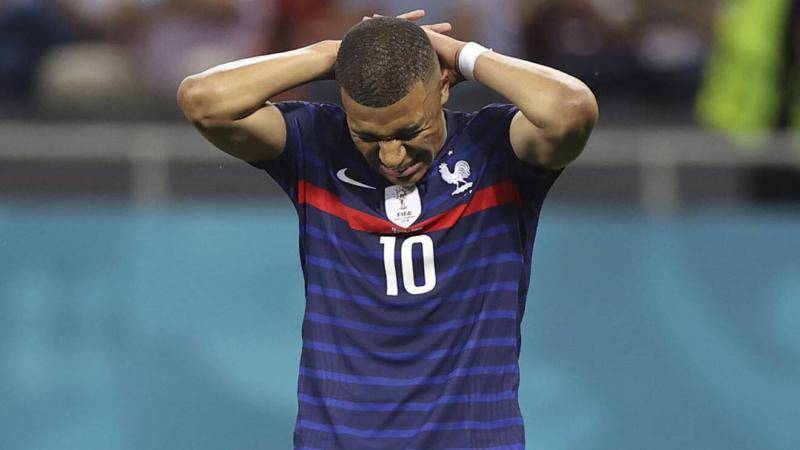
France’s superstar striker clearly has the option of leaving for nothing next summer on his Bosman status, or for that matter already even look ahead to entertaining pre-contractual discussions with his ever-eager La Liga suitors or any others in about 4 months time as January makes its entry – but all that somehow seems to hold little significance to a club of PSG’s State-owned stature, wealth and grand ambitions.
If ever there’s one thing that Paris Sait-Germain’s owners fear, it would be subservience – specifically the subservience to a situation that could imply it no longer has control over the issue at hand, whatever that issue may be and regardless of whichever party or rival has seized control.
Broken down to its most basic level, State-dominated or totally State-controlled ownership of a usually private or public enterprise is an attempt to seize irrevocable control: controlling media coverage of your State, controlling the destiny of important title events, controlling the future of football itself to achieve specific missions long laid out in their meticulous planning.
As soon as that all-significant control is ceded, subservience seeps inevitably into the cracks. And this is precisely where Qatar – via Qatar Investment Authority, their dominant investment arm – is poised all this while with their strategic ownership of Paris Saint-Germain as their flagship European football club as a key cornerstone to effectively anchor all other building blocks that have long since been put carefully into place integral to their grand plans for economic amelioration and sustainability in the future.
Qatar’s first needs to slash the Gordon Knot obstructing their future progress – which in their case would be the highly-unfavorable international perception of their odious – many would say heinous – human rights record which is a stigma the State needs to remove either in whole or in large part by effective sportswashing. The latter is what we are addressing here, and for sportswashing to be effective, it is totally reliant on success. Because only because success brings with it control as this is what would empower, facilitate and expedite the arrival of a glorious new era for the Gulf state.
On deadline day, Real Madrid, despite their huffing and puffing, reportedly failed with their €200m (£171m) bid for Kylian Mbappe, having already seen offers of €160m (£137m) and €170m (£145m) plus add-ons rebuffed with total disinterest from their Parisian counterpart. All the three bids made were in themselves much more substantial than the English league’s record-breaking £100m that was paid by Manchester City to Aston Villa for the latter’s talisman, Jack Grealish.
To any other European club and not just Real Madrid, especially within the confines of the current dismal scenario of an international pandemic with its strangulation on finances, the Madridistas’ bids were respectable by all standards and not something to be laughed at. However, this is Qatar-owned Paris Saint-Germain we are talking about here. Were it any other club with an unassuming guise of normality, perhaps even any of the elitist historical superclubs that are not State- nor oligarchy-owned, that offer would surely have been sufficient to seal the deal. Why shoudn’t it? After all, Mbappe is out of contract at the end of this season and PSG’s sporting director Leonardo openly admitted that he wanted to leave as it is his free will to do so – but at the right price to be determined by his owners, not Real Madrid. That is the key caveat. For all he wants, Mbappe can sign a pre-contract agreement with another club in four months’ time. But will PSG allow that to happen at all or that easily?
Let’s be completely generous and take some liberties with our thinking for a moment. There are valid sporting reasons to keep Mbappe for another year. With Barcelona now either broken or a spent force in shambolic disarray, English clubs likely to be distracted by a domestic title dogfight and doubts about Bayern Munich peaking in their first season under new coach Julian Nagelsmann who replaced Hansi Flick, this represents PSG’s best chance to win the Champions League within the next few seasons. Of course one can always question the true sporting merit of that success given their vast spending if they were to win it these two seasons, but Qatar has proven itself incredibly adept at ignoring criticism, as any conglomerate or commercial enterprise also would be, let alone a State-owned entity powered by oil and gas affluence like Paris Saint-Germain.
To be fair to all, the same yardstick should be applied across the spectrum in evaluating success based on true sporting merits. The best players, managers, coaches and the whole ancillary regiment of the best sporting staff cost lots of dineros to acquire and put in place to build the best and most consistent title-winning teams year in, year out. If the right offers are there eager and waiting, surely many a club would have sold out and many a deal already concluded. The State-owned affluent boys and the oligarchies have already begun moving in. At a lesser level, Chinese corporations have also already begun investing in English football clubs. At the end of the day, it all boils down to the simple question of who has the requisite spending power? Those who don’t can only quibble, pout and continue to complain while those whose pockets are truly deep just ignore the incessant bickering and bitching.
The Kylian Mbappe situation is an intriguing paradigm demarcating the clear line drawn separating the state-owned clubs flexing their muscles while the nouveau riche clubs try to engage in spending and selling intelligently vs the historic elite. Ultimately, there was only likely to be one winner in the three-way battle. At a glance, it’s clear who would have the upper hand and the final say – if the player in question is left out of the debate.

